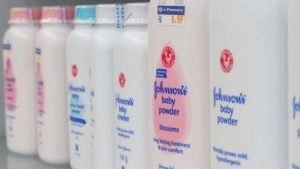Investors’ eyes are closely following the massive rally in pharmaceutical stocks amid the red-hot anti-obesity market. In 2024, the projected revenue for the pharma market is estimated to reach $1.15 trillion. And, oncology drugs are expected to be the largest segment at $214.1 billion, according to Statista.
One sub-sector has been of particular interest in recent months – the anti-obesity drugs market. The global market for anti-obesity medications (AOMs) reached $6 billion annually earlier this year. In fact, it is projected to soar to $100 billion by 2030, a growth of over 16 times, as per Goldman Sachs Research.
With obesity nearly tripling worldwide since 1975, it’s become the fifth-leading risk factor for global mortality, notes the World Health Organization. Factors like dietary habits, physical activity levels, and genetics drive obesity rates. The World Obesity Atlas 2023 forecasts over half of the global population to be overweight or obese by 2035, up from 38% in 2020.
Therefore, let’s take a look at three top pharma stocks to buy that are showing great potential.
Eli Lilly (LLY)

Eli Lilly (NYSE:LLY) focuses on developing treatments for various medical conditions, including anti-obesity medications. The firm addresses the rising global obesity epidemic to improve patient health and well-being.
LLY recently presented its fourth-quarter results, with a gross margin of 80.9%, surpassing analyst estimates. Adjusted EPS stood at $2.49, showing growth from the previous year.
The company’s revenue reached $9.35 billion, marking a notable 28% increase year over year (YOY). As expected, the anti-obesity drug Mounjaro saw its revenue exceed expectations. Looking ahead, Eli Lilly provided optimistic financial guidance for 2024.
The company anticipates revenue to be in the range of $40.4 billion to $41.6 billion for the year. Additionally, EPS for 2024 is projected to range between $11.80 to $12.30 on a reported basis and $12.20 to $12.70 on a non-GAAP basis.
Eli Lilly’s leading market position should continue gaining momentum over the coming months and years. Bank of America (NYSE:BAC) analysts recently hiked their price target on LLY to $1,000 per share.
Novo Nordisk (NVO)

Denmark-based Novo Nordisk (NYSE:NVO) specializes in pharmaceuticals that focus on anti-obesity treatments. The company develops innovative medications to address the global epidemic of obesity.
NVO has been struggling to secure enough supply of its blockbuster treatments of Saxenda and Ozempic. Thus, the company has agreed to buy Catalent (NYSE:CTLT) in an all-cash transaction valued at $16.5 billion.
Under the terms of the deal, Novo Nordisk will purchase all outstanding shares of Catalent at $63.50 per share. This represents a premium of 16.5% to Catalent’s recent closing price, and 47.5% to the 60-day volume-weighted average price.
Following the merger, NVO will gain control of the three Catalent fill-finish sites and related assets, located in Italy, the U.S. and Belgium. The transaction aligns with Novo Holdings’ strategy of investing in established life science companies. This will enable Catalent to leverage Novo’s resources for further growth and development.
Johnson & Johnson (JNJ)

The multinational 138 year-old Johnson & Johnson (NYSE:JNJ) is known for its consumer health products, pharmaceuticals and medical devices. With a diverse portfolio spanning pharma, medical devices, and consumer health products, JNJ remains an innovative healthcare leader.
In January, the company reported quarterly results that surpassed analyst expectations. Adjusted earnings per share came in at $2.29, slightly beating the estimated $2.28. Quarterly sales amounted to $21.40 billion, exceeding the projected $21.07 billion. The company reiterated its guidance for 2024, anticipating operational sales growth between 5.0% and 6.0%.
Key report highlights include strong performance in JNJ’s Innovative Medicines segment, noting growth in Stelara (+15% YOY) and Darzalex (+25% YOY). Furthermore, the portfolio saw overall outperformance, particularly in Interventional Solutions.
Given its diversified and high-quality portfolio, the stock is among the most-owned pharma stocks among long-term retail and institutional investors.
On the date of publication, Shane Neagle did not hold (either directly or indirectly) any positions in the securities mentioned in this article. The opinions expressed in this article are those of the writer, subject to the InvestorPlace.com Publishing Guidelines.

